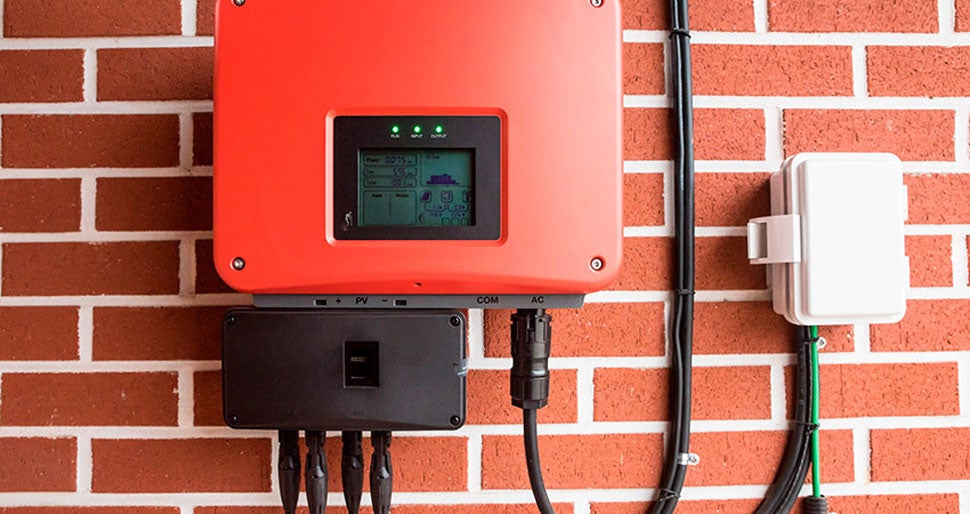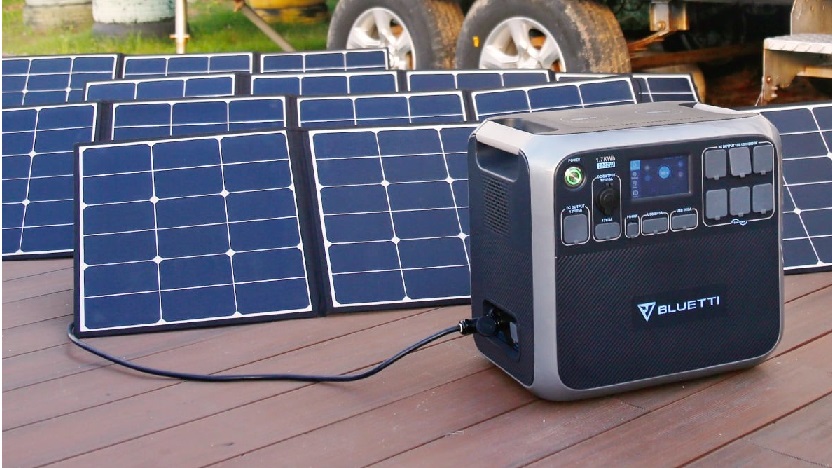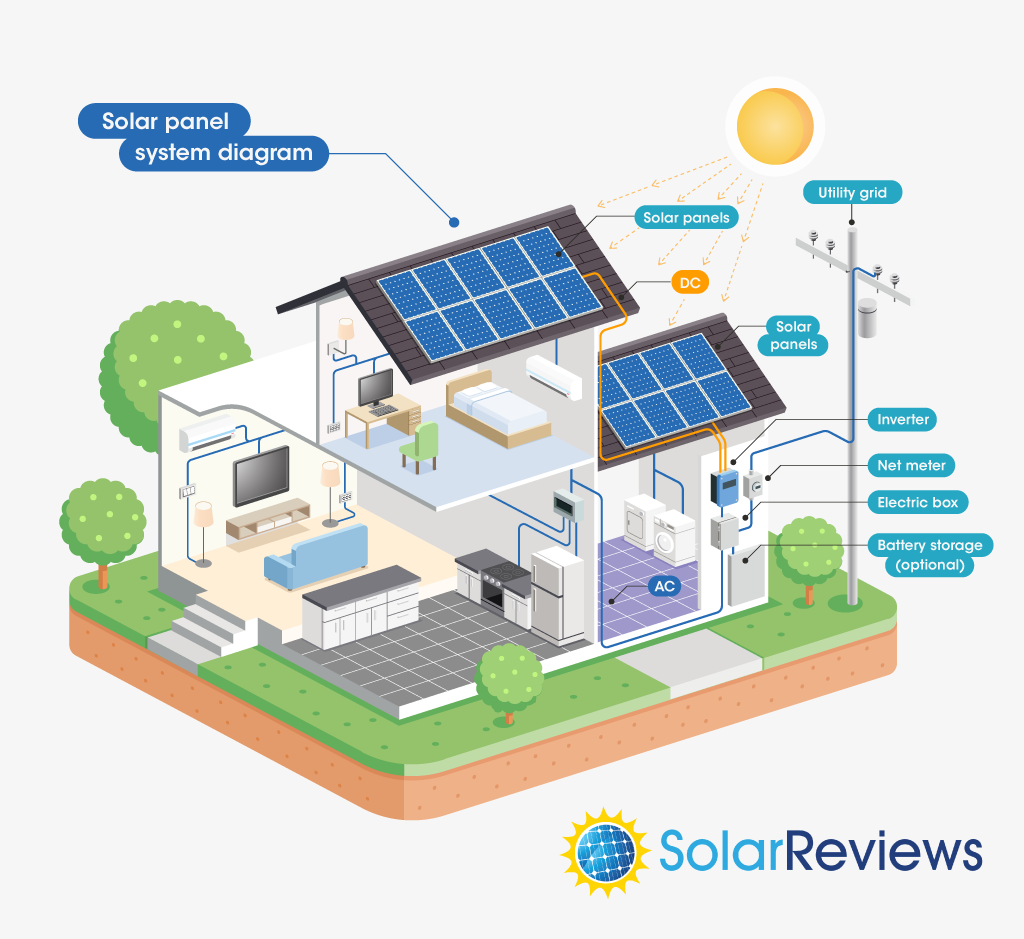 |
||
| ‘Helpful Information’ ~ Keep the Power On (with Solar) | ||
| What equipment do you need for a solar power system? | ||
| Updated October 6, 2020 (Article republished from Solar Reviews). Around the globe, more and more homeowners are electing to install residential solar power systems. Their motivation is to reduce long-term energy costs while minimizing their carbon footprint. According to a report by SEIA, a record amount of residential solar capacity was installed in Q3 2019, and overall growth for 2019 is estimated at 23%, with growth expected to continue in the coming years. This rapid development has stemmed mostly from improvements in the efficiency and lower cost of the latest solar power systems.So, what is needed to create an efficient solar power system for home use? What equipment is required? What will be the investment and savings? And when will break-even occur? 
What is a solar panel system?Roof-mounted solar panel systems absorb and convert the energy-packed photons of natural sunlight into a usable energy form. The solar panel systems are often referred to as PV, or photovoltaic, solar power systems. Home installation of a high-quality solar power system can reduce or eliminate dependence on the community power grid that supplies electricity to light, heat, cool, and operate your home. The result of a residential solar power system installation is a clean, renewable energy source that requires minimal maintenance with savings that may pay back the initial investment in just a few years. Once your solar system is paid off, you will have decades of free energy. Most residential solar power systems are referred to as grid-tied systems, meaning they are still connected to the power grid and can utilize it for backup power, whereas in remote areas with undeveloped land and limited access to grid power, off-grid systems are more common. This video explains how a grid-connected solar system works to power a home:
Related articles: Grid-tied solar systems explained Blackouts: Are off-grid solar systems the answer? What are the main components of a solar panel system?
Understanding the components of a solar power system is the first step. The components of a home solar power system include:
Solar panelsThe solar panels themselves are the key elements of a solar power system. The essential attributes to consider are the efficiency, cost, warranty, and technology type. SolarReviews produces an extensive, unbiased list of leading solar panel brands from around the world comparing attributes such as efficiency and warranty. The two types of solar panels most suitable for residential solar installations are monocrystalline and polycrystalline panels. These perform similarly, although the monocrystalline is slightly more efficient and a little more expensive. The number and placement of solar panels are dependent on:
There is also usually the potential for actually selling back power to the grid for credits, which is known as net metering. Learn more: What is net metering and how does it work? A professional solar installer can help calculate the number of solar panels to create the most cost-effective system or you can use the solar system size calculator on this site. Solar inverterInverters are the mechanisms that convert the direct current (DC) produced by the solar panels into the alternating current (AC) that homes require. Inverters come in three types:
Related articles: How a solar inverter works in your home solar system Comparing micro inverters vs string inverters, plus other inverter types Solar rackingSolar panels are not attached to the roof directly. Panels are mounted on racking systems, which are attached to the roof and angled for the optimal degree of sun exposure. Solar performance monitoringTo verify the performance of your PV system, a monitoring system will show you how much electricity is being generated per hour, per day, or per year. The system can identify potential performance changes, as well. Solar storageSolar batteries can be installed to store energy for later or simply overnight. Essentially, storage batteries allow a PV system to operate when the electric grid is not available. Alternatively, in some communities, net metering is available, which allows excess energy to be sent to the grid for credits. In essence, you will be using the grid as your excess storage option. How much will a solar power system cost?As mentioned, a few variables can be assessed to determine the right system for any residential application. It’s important to note that the equipment may not be the most expensive component since the professional installation requires time, training, expertise, and materials. Cost per watt and estimated cost per kWh are commonly-used metrics for comparing prices of different installers. Also keep in mind that while a typical payback period may be approximately six to seven years, some manufacturers offer a 25-year warranty. Imagine the utility costs you could save over the course of at least two decades. And, as part of the calculation, keep in mind that the IRS offers a substantial tax credit of 26% on your solar panel system, as well as some states offering additional incentives. Our solar calculator incorporates initial costs plus long-term savings to help with your decision of whether or not to go solar. Who should I use to install my solar system for home?Proper installation can be as critical to future performance and return on your investment as the quality of the equipment. Extensive training and a complete understanding of each element are essential. Many of the best manufacturers have partnered with qualified installers in each geographic area. These companies provide onsite training and verification of professional installers before certification. What is the best solar power system for home?While many manufacturers believe they are the “best,” one way to verify the best choice is to refer to comparisons by reputable sources. Two essential elements to consider for long-term value are efficiency and reliability, and the length of the warranty. Efficiency is a determinant of how solar energy from the sun is converted to electricity per square foot. According to several solar websites, including SolarReviews, SunPower solar systems lead all others in terms of solar panel efficiency but their solar panels are also sold at quite a premium over other very good solar panels that are almost as efficient. Length of warranty is a function of the confidence the manufacturer has in their products and an assurance that you are covered if something should happen. Product warranties can range anywhere from five or 10 years to 25 years. Many of these warranties include protection on performance, labor, and parts, as well as a high level of warranted power output. To find out if a solar panel system is a worthwhile and attainable investment for you, use the solar calculator to gather the information you need to make a decision.
Andy is deeply concerned about climate change but is also concerned about cost of living pressures on American families. He advocates for solar energy and solar battery storage only to the extent that they make financial sense for homeowners. He is not affiliated with any particular solar company in the United States. |
||
| ✔️ 💻 Bypass censorship by sharing one of these links: https://1realnews.com/helpful-f4/ or http://at.box1.ws/helpful-f4/ or https://box91.com/helpful-f4/ or https://box127.com/helpful-f4/ or https://box145.com/helpful-f4/ or https://box154.com/helpful-f4/ |
||
~ Check Out ~  |
More on Solar Power  |
~ Good to Know ~  |
Daily Updates
Copyright © 2024 100% Real News Plus















